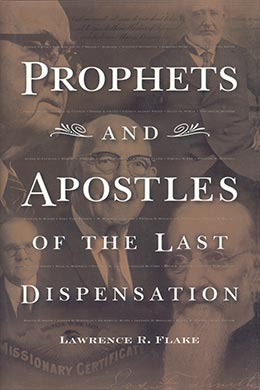Lyman Eugene Johnson
Lawrence R. Flake, Prophets and Apostles of the Last Dispensation (Provo, UT: Religious Studies Center, Brigham Young University, 2001), 377–78.
Born: 24 October 1811, Pomfret, Vermont
Quorum of the Twelve Apostles: 14 February 1835 (age 23)
Excommunicated: 13 April 1838
Died: 20 December 1856 (age 45), Prairie du Chien, Wisconsin
Lyman Eugene Johnson was the first member of the Quorum of the Twelve Apostles in this dispensation. His name was called first on 14 February 1835 by the Three Witnesses to the Book of Mormon, who had been designated by revelation to select the Twelve. Although Brother Johnson was ordained before the other apostles, he did not become president of the quorum because age rather than the order of ordination was used at that time to determine seniority. As a matter of fact, Lyman, at twenty-three, was the youngest member of the group, although there were three others who were also twenty-three.
Born near Joseph Smith’s birthplace in Windsor County, Vermont, Lyman received the gospel at the age of nineteen and was baptized by Sidney Rigdon. In a revelation given in November of that year, the young man was called to be a missionary. He labored in Ohio and the eastern states, as well as in Nova Scotia. Following his participation in the march of Zion’s Camp, he filled two more missions to the East and married Sarah Land; together they had two children.
The bitter spirit of apostasy that pervaded Kirtland late in 1837 afflicted Lyman, and in September he was disfellowshipped by his quorum. But upon his repentance and confession a few days later, he was reinstated. Not long thereafter, however, Lyman and his brother Luke, also a member of the Twelve, joined with those seeking the overthrow of the Church in Kirtland. At a trial on 11 April 1838 at Far West, Missouri, the Johnson brothers, Oliver Cowdery, and David Whitmer were excommunicated from the Church. In addition to joining with the dissenters, Lyman was charged with bringing distress upon the innocent, assaulting Phineas Young, not attending meetings nor observing the Word of Wisdom nor praying, and with other unrighteous conduct. Lyman did not appear at the trial but sent a letter rejecting his association with the Church.
After his apostasy, he remained friendly with some of his former brethren in the Church and visited Nauvoo occasionally when the Saints settled there. In Davenport, Iowa, he practiced law until his death in 1856 as a result of a drowning accident in the Mississippi River. [1]
Notes
[1] See Lyndon W. Cook, The Revelations of the Prophet Joseph Smith (Provo, UT: Seventy’s Bookstore, 1981), 111; Calvin N. Smith, “Among First Apostles, 3 ‘Forgotten,’” Church News, 25 February 1989, 7.
